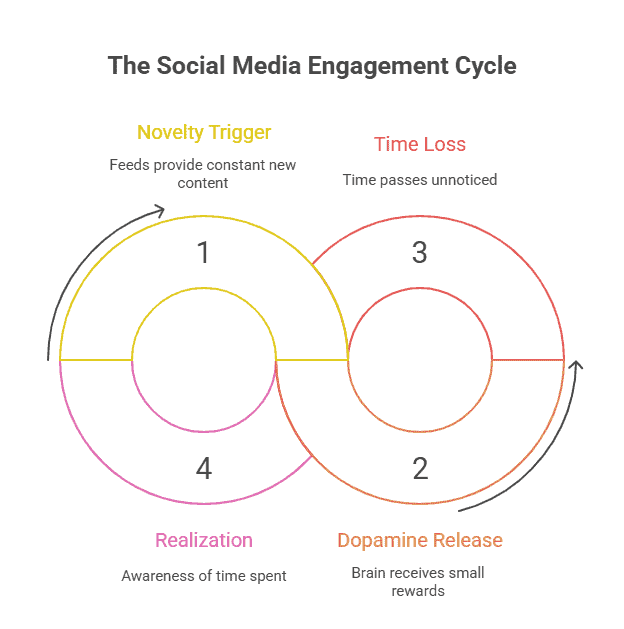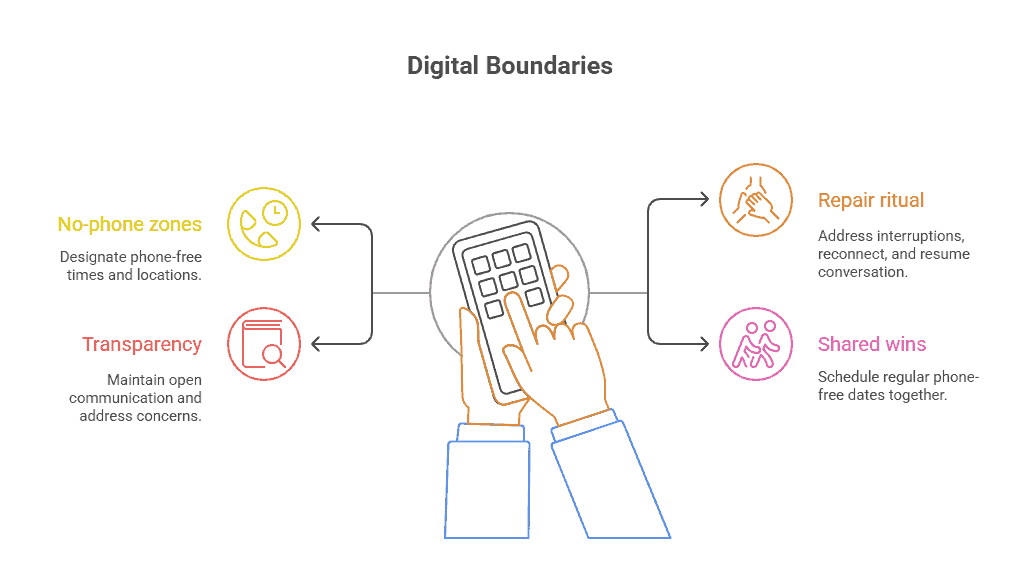If you’ve wondered whether stepping away from your feeds could actually help, here’s the short version: deleting social media can lift mood, reduce comparison, restore attention, and give you back hours for real-life connections. It also lowers friction in relationships by removing DM drama, late-night scrolling, and “just one more video” moments that crowd out presence. In other words, why deleting social media is good comes down to trading noise for clarity—and trading pixels for people.

The Hidden Costs We Don’t Notice (Until We Do)
Dopamine Loops & “Just One More” Design
Feeds are engineered for infinite novelty. Your brain gets tiny rewards for each swipe; your time gets quietly siphoned away. That combo is why you check a notification and somehow reappear 37 minutes later, blinking like you’ve left a movie matinee at noon.
Comparison Pressure & Mood
Curated highlight reels meet your unedited life. The gap breeds “not enough”—not fit enough, not rich enough, not happy enough. Even if you know it’s curated, your nervous system doesn’t file a disclaimer.
Cognitive Overload & Sleep
Pings, reels, and hot takes create mental static. Add blue light and bedtime doomscrolling, and you’re gifting tomorrow’s self a groggy brain and a shorter fuse.
Micro-check: Do you close a social app feeling lighter and more connected—or mildly anxious, rushed, and behind? Your answer is data.
When the Feed Enters the Relationship
“Together but Elsewhere”
It’s very depressing to think about how frequently phones become the third party at dinners, on date nights, or during a bedtime talk. Intimacy is not created by proximity but by presence.
Jealousy & Blurred Boundaries
Old flames, flirty comments, and late-night DMs can be “technically harmless” yet emotionally corrosive. Ambiguous behaviour online often becomes unambiguous conflict offline.
The Comparison Trap at Home
It’s easy to measure partners against strangers’ filtered wins: perfect vacations, perfect bodies, perfect kitchens. Unrealistic expectations are resentment wrapped in marble countertops.
Conflict by a Thousand Alerts
“I was listening.” “No, you were scrolling.” Repairing a disagreement is hard enough without a notification chorus auditioning in the background.
The Upside of a Hard Reset
Mood, Clarity, and Time
Fewer triggers mean calmer baseline emotions and sharper focus. Many people discover they’ve quietly reclaimed 7–10 hours each week. (That’s a hobby, a language, or at least finishing the show you started in 2021.)
Intimacy Returns
Eye contact lengthens. Touch and humour show up again. You notice small bids for attention—those tiny “look at this!” moments that knit people together.
Trust Rebuilds Faster
When secrecy, algorithmic temptations, and perpetual distraction leave the room, the temperature drops. Honesty gets simpler; defensiveness eases.
A 30-Day Social Reset (Simple, Structured, Kind)
1) Prep & Pause
Export your data, tell close contacts how to reach you, and deactivate or remove apps across devices. If you must keep accounts for work, restrict them to desktop, time-boxed windows.
2) Replace the Habit
Make a “boredom menu”: short walks, three-page reading sprints, five minutes, a quick call to someone who loves you. Boredom is the bridge to better choices—cross it on purpose.
3) Protect Evenings
Charge phones outside the bedroom. Create a 60-minute “digital dusk” before sleep. Your 8 a.m. self will send a thank-you card.
4) Check the Results Weekly
Sleep quality, mood, arguments, and time reclaimed—track them briefly. The numbers help you decide what to keep after day 30.
Couples’ Agreement: Phone Rules You’ll Actually Keep

- No-phone zones/times: Mealtimes, the first 30 minutes after work, and the bedroom.
- Repair ritual: If a device interrupts, name it, put it down, reconnect (eye contact, a touch), then pick up the conversation.
- Transparency without policing: No secret accounts; notifications off by default; bring up concerns early and kindly.
- Shared wins: Schedule one phone-free mini-date per week—even if it’s a walk around the block.
Red Flags That Signal It’s Time
- You hide usage or delete message threads to avoid questions.
- Scrolling often replaces sleep, intimacy, or parenting presence.
- You regularly feel worse after using an app.
- Most arguments begin with “You’re always on your phone.”
Midpoint reminder: the most practical case for why deleting social media is good is that it makes room for rest, for focus, and for the humans right in front of you.
What This Means for You
Social media can be a reason for your mood or your relationship suffering, and you don’t need to have a flawless plan—it’s the first step that needs to be clear. Go through the 30-day reset, record your feelings, and afterwards, bring back only what aligns with your values. Plus, if you do come back, come back on purpose: filtered feeds, limited times, and strict no-phone areas.
Next Steps with Inner Peace Therapies
Inner Peace Therapies aids people and couples in building relationships instead of fighting: creating technology rules that remain, confidence restoration after online mistakes, and better conversations so you are really understood (and desired) again. Our therapists provide individual, teen, family, group, and couple sessions—both in-person and virtual—customised to your capabilities and aspirations.
Check out couples counselling Illinois to discover how we can assist your love life and direct your focus back to where it should be—on each other and the life you are co-creating. Finally, the most persuasive argument for quitting social media is that it simply allows your best energy to go to your best people.





